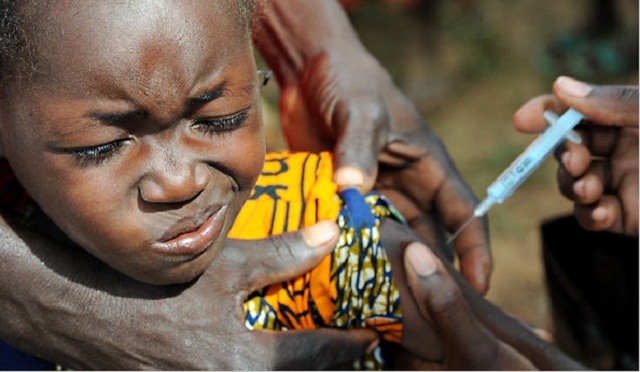
Kampala, Uganda | THE INDEPENDENT | The World Health Organisation (WHO) is urging countries to ensure that routine immunization programmes continues even as the organization had previously called for a postponement of immunization campaigns in countries that have recently had outbreaks of immunisable diseases like measles.
When immunization services are disrupted, even for a brief periods during emergencies, the risk of vaccine-preventable disease outbreaks, such as measles and polio increase, the organization notes citing an example of last year’s deadly measles outbreak in DR Congo which took more than 6,000 lives in a country already facing its largest Ebola outbreak.
“Disease outbreaks must not remain a threat when we have safe and effective vaccines to protect us,” said Dr Tedros Adhanom Ghebreyesus, WHO Director-General in a statement released yesterday evening in the lead up to the World Immunization Week that starts today.
He adds that while the world strives to develop a new vaccine for COVID-19 at record speed, “we must not risk losing the fight to protect everyone, everywhere against vaccine-preventable diseases. These diseases will come roaring back if we do not vaccinate.”
Some of the feared outbreaks include polio, diphtheria and yellow fever which are already a high concern, especially in the countries least able to respond quickly and decisively to address an emerging outbreak.
Also, WHO notes too many people are still excluded from the benefits of vaccines prior to the COVID-19 pandemic even as the world had made immense progress in ensuring that children are vaccinated, the statement notes.
In 2018, 86 percent of children under the age of five globally were vaccinated with three doses of diphtheria, tetanus and pertussis (DTP3) and one dose of the measles vaccine, up from 72 percent in 2000 and 20 percent in 1980. The number of children paralyzed by polio has been reduced by 99.9 percent worldwide.
Yet, global vaccination coverage is still far from the 95 percent coverage needed to fully protect communities against outbreaks of this vaccine-preventable disease. However, statistics also show that in 2018 nearly 20 million children worldwide equivalent to more than 1 in 10 missed out on lifesaving vaccines, such as measles, diphtheria and tetanus.
Roughly, 13 million of the children have never received any vaccines, putting them and their communities at risk of disease and death and yet the majority of these children live in countries with already fragile health systems with limited access to essential health services when they fall sick.
Measles continues to remain an ever-present threat, especially if vaccination rates drops. Current projections indicate that the number of reported measles cases for 2019 will be at least 800 000.
In 2020 there are increasing concerns about another resurgence, especially if vaccination rates fall due to delay or suspension of scheduled immunization activities as a result of COVID-19.
******
URN
 The Independent Uganda: You get the Truth we Pay the Price
The Independent Uganda: You get the Truth we Pay the Price



